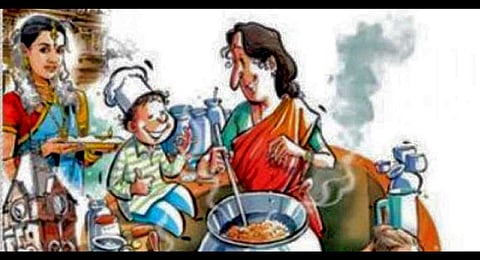

Traditionally in Indian society, the contributions of homemakers towards the development of their houses and the economy have been undermined and often not recognised at all. Many in this patriarchal setup claim that women ‘fit’ the role of a homemaker and hence it is not important to recognise their contributions. However, times have changed and different legislations and judgments have been passed in favour of recognising people of different sexes as equals. But what was not recognised was the contribution made by different people in different ways on both the micro- and macro-economic scale.
Interestingly, it took a completely unrelated statute to understand a homemaker’s contribution to society, at least economically. This is not the first case where such income is determined on a notional basis but a thorough analysis with reasons in the instant judgment warrants commendation. Recently, the Supreme Court of India in Kirti and Anr. v. Oriental Insurance Company has recognised the value of calculating the notional income of a homemaker while awarding compensation under the Motor Vehicles Act, 1988.
There are different factors that are taken into account while fixing the compensation, such as the age and income of the deceased, the number of surviving dependents, the future prospects of earning and the like. The deceased couple in the instant case were survived by three dependents. While fixing the compensation, the Motor Accident Claims Tribunal had awarded a compensation of Rs 46 lakh, which was challenged in the Delhi High Court, wherein the compensation was reduced by approximately 50% and it was fixed at Rs 22 lakh. This verdict was then challenged in the Supreme Court.
It has been held by the courts time and again that the compensation awarded always has to be just, fair and reasonable and should be governed by the principles of equity, and that the standard of living of the family should be taken into account. The court unanimously applied these principles and applied the reasoning in National Insurance Company Limited v. Pranay Sethi in adding 40% of the income over future prospects as both deceased were below 40 years of age.
Justice N V Ramana in a separate concurrent judgment pronounced a well-reasoned verdict on the question of notional income of the housewife and calculation of future prospects. No doubt, it is a difficult task to arrive at a just compensation based on the notional income. However the court is faced with such tasks, especially in cases where the victim is understood as non-earning. For instance, in M R Krishna Murthi v. New India Assurance Co. Ltd., the court took into account the academic proficiency, course being studied and family background when fixing the notional income of a student.
Previously, in Arun Kumar Agrawal v. National Insurance Co. Ltd., it has been held that “in India the courts have recognised that the contribution made by the wife to the house is invaluable and cannot be computed in terms of money. The gratuitous services rendered by the wife with true love and affection to the children and her husband and managing the household affairs cannot be equated with the services rendered by others. … It is not possible to quantify any amount in lieu of the services rendered by the wife/mother to the family i.e. the husband and children. However, for the purpose of award of compensation to the dependants, some pecuniary estimate has to be made of the services of the housewife/mother.”
The statistical analysis in the present judgment reveals that the majority of the women spend a major portion of their time doing unpaid household work and the verdict also brings out the gender disparity in the same. The judge categorically notes that the notion that housemakers do not ‘work’ needs to be overcome as it is a problematic idea. The United Nations Committee on the Elimination of Discrimination against Women vide General Recommendation No. 17 has affirmed that the “measurement and quantification of the unremunerated domestic activities of women, which contribute to development in each country, will help to reveal the de facto economic role of women”.
The most pertinent observation is in relation to the fact of ‘acceptance’ of such work. This will result in a broader change in attitudes of people in order to ingrain what is actually meant by social equality, which forms an important feature of a civilised society with a constitutional framework in place. Of course, the amount of compensation based on notional income varies from case to case and there can be no formula for the same. But recognising the efforts not only within the household but on a broader level of contribution towards the GDP is a step in the right direction.
Kavya Lalchandani
Legal scholar based out of Delhi
(lalchandani.kavya@gmail.com)